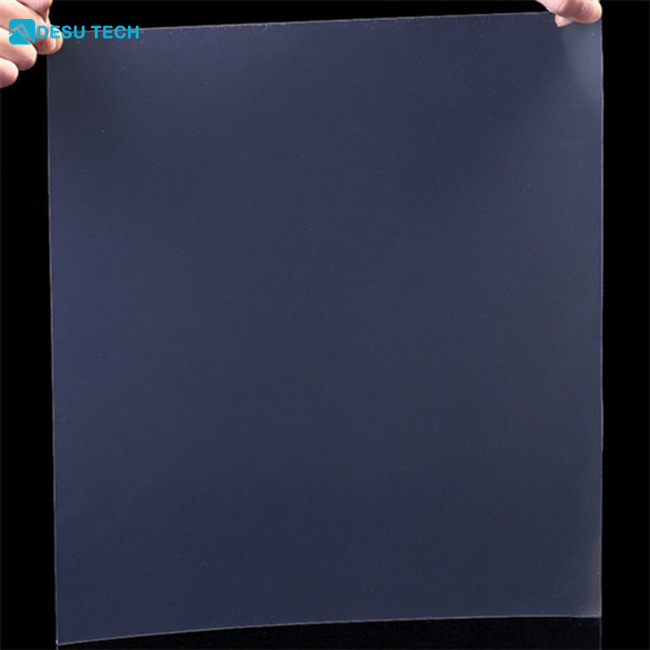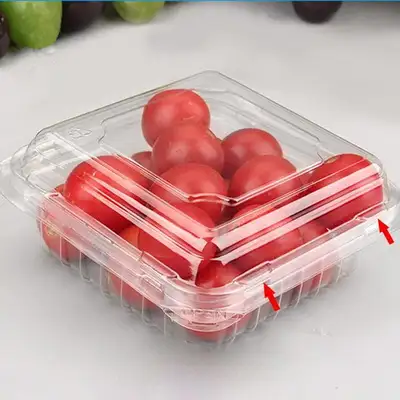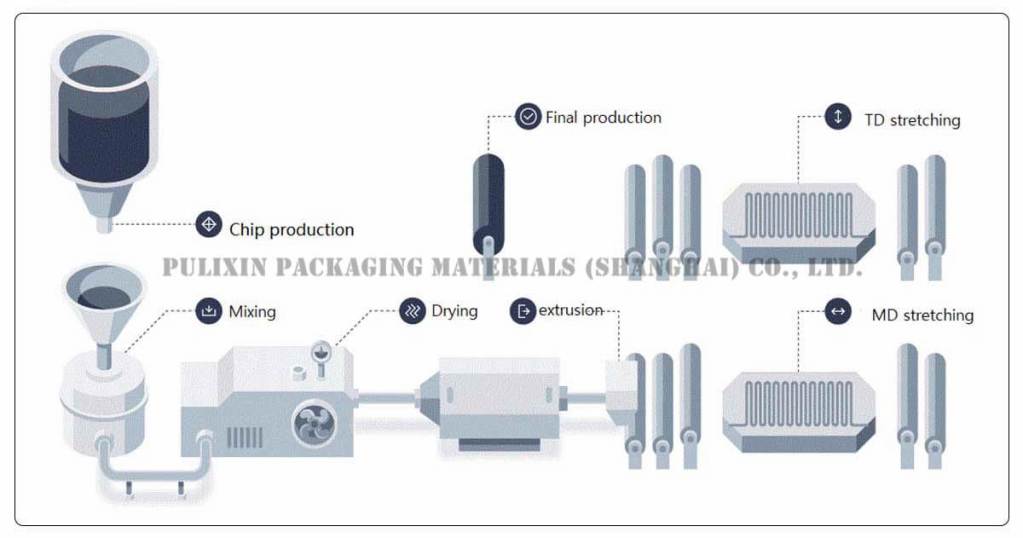
Specification
- Brand: DESU
- Origin: Shanghai, China
- Width: 300-1400mm
- Barrier material: PET plastic sheet roll
- Processing methods: Lamination / Multilayer co-extrusion
- Thickness: 0.8 mm
- Weight: 50-150kg/roll
- Shape: Roll/Sheet
- Color: Transparent/Custom color
- MOQ: 5tons
Introduction of 0.8 mm pet plastic sheet roll
PET (Polyethylene Terephthalate) plastic sheet rolls are versatile and widely used in various industries for their excellent properties. The 0.8 mm PET plastic sheet roll, with a thickness of 0.8 millimeters, offers a perfect balance between flexibility and durability, making it suitable for numerous applications.
Features of 0.8 mm pet plastic sheet roll
1. Thickness: The PET plastic sheet roll with a thickness of 0.8 mm provides sufficient sturdiness while remaining flexible enough to accommodate various shaping and forming processes.
2. Transparency: PET is known for its excellent transparency, allowing products packaged with these sheets to showcase their contents attractively. This feature is particularly beneficial for packaging applications in the food and retail industries.
3. Lightweight: Despite its durability, PET plastic is lightweight, making it ideal for applications where weight considerations are crucial, such as in the transportation of goods.
4. Chemical Resistance: PET plastic exhibits good resistance to many chemicals, making it suitable for use in industries that require protection against chemical exposure.
5. Recyclability: PET is highly recyclable, making it an environmentally friendly option compared to other plastics. It supports sustainability initiatives and helps reduce environmental impact.
Applications of 0.8 mm pet plastic sheet roll
The 0.8 mm PET plastic sheet roll offers an array of advantages that cater to diverse applications across industries. Its versatility, durability, and eco-friendly nature make it a popular choice for packaging.
1. Food and Beverage Packaging: Packaging in the food and beverage industry is essential to protect the products from contamination, maintain their quality, and provide relevant information to consumers (such as nutrition facts, expiration dates, and ingredients). Clarity in packaging is particularly beneficial for displaying the product’s color and texture, encouraging consumer purchase.
2. Pharmaceutical Packaging: The pharmaceutical industry requires packaging that ensures product safety, extends shelf life, and maintains the potency of drugs. Transparent packaging might be used for certain medications to allow visibility of the contents or to indicate proper dosages.
3. Consumer Goods Packaging: Packaging for consumer goods encompasses a wide range of products like electronics, household items, personal care products, and more. Clear packaging can help consumers make informed decisions by visually assessing the product before purchase.
4. Custom-Shaped Trays and Containers: Thermoforming using PET plastic sheet rolls allows manufacturers to create custom-shaped trays and containers. These trays and containers can be tailored to fit specific products, providing secure and efficient packaging solutions. They are commonly used in the food and beverage industry, as well as for retail packaging of various consumer goods.
5. Blister Packs: Thermoforming with PET plastic sheets is also commonly employed to produce blister packs. Blister packs consist of a transparent PET plastic front, allowing consumers to see the product inside, and a heat-sealed backing made of aluminum foil, paperboard, or other materials. Blister packs are widely used in pharmaceutical packaging to protect and display individual doses of medications.



Production of 0.8 mm pet plastic sheet rolls
The production of PET plastic sheet rolls with a thickness of 0.8 mm is a complex process involving the control of multiple parameters such as equipment, temperature, pressure and speed. The production process needs to be strictly controlled to ensure the stability and quality of the product.
1. Raw material preparation: PET resin that meets the quality standards is selected as the raw material for producing 0.8mm PET plastic sheet rolls.
2. Melt extrusion: Put the PET resin into the hopper of the extruder. The extruder heats and melts the resin through a pair of screws, and pushes the molten plastic to the extrusion head (die) of the extruder.
3. Extrusion head design: The design of the extrusion head should meet the required film or sheet thickness requirements (0.8 mm). The die shape and size of the extrusion head will directly affect the extruded film thickness.
4. Extrusion and cooling: Under the action of the extrusion head, the molten PET plastic is extruded through the die to form a film or sheet of plastic. During extrusion, proper cooling needs to be ensured to maintain the shape and thickness of the plastic.
5. Calendering: Extruded film or sheet plastic is processed through calender rolls to ensure a consistent thickness and flat surface.
6. Cooling and solidification: The calendered plastic film or sheet material is cooled by a cooling device to solidify and stabilize its size.
7. Coiling: The cooled and solidified PET plastic film or sheet material passes through the coiling device and is rolled into a roll to form a 0.8 mm PET plastic sheet roll.
8. Inspection and packaging: Quality inspection is carried out on the produced PET plastic sheet rolls to ensure that their thickness and other specifications meet the requirements. The plastic sheet rolls are then packaged and stored for dispatch or further processing.

